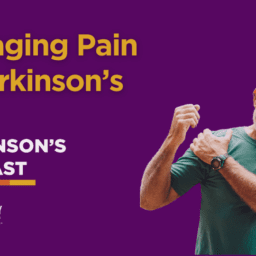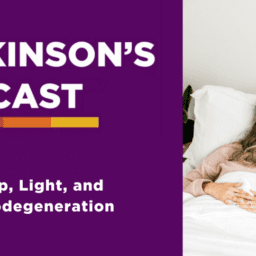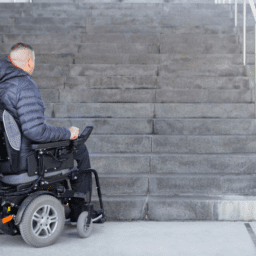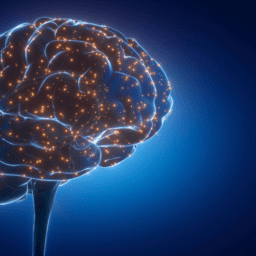In this video, Dr. Aaron Haug answers questions about non-motor symptoms of Parkinson’s.
You can read the transcript below or you can download it here.
Note: This is not a flawless, word-for-word transcript, but it’s close.
Melani Dizon (Former Director of Education and Content, Davis Phinney Foundation):
Hello and welcome everyone. My name is Melani Dizon. I’m the Director of Education and Content at the Davis Phinney Foundation. And today I am here with Dr. Aaron Haug. How are you doing?
Aaron Haug (Movement Disorder Specialist, HealthONE Neurology Specialists):
I’m good. Thank you for having me. Good.
Melani Dizon:
Well, I always love talking to you. You’re just a wealth of information and our community loves you. So, I’m really glad to have this conversation again about non-motor symptoms. You can never have too many conversations about non-motor symptoms because they’re such a big issue for people with Parkinson’s. But can you tell everybody first, maybe for the people who don’t know you, who you are, where you’re working, and how you got involved in working with people with Parkinson’s?
Aaron Haug:
Absolutely. Well, thank you again for having me. I always like talking with the Davis Phinney Foundation. You have such an engaged community that it’s really rewarding to participate in. So, I’m a neurologist and movement disorder specialist. I did my residency and fellowship at the University of Colorado, and I’ve been in practice in the Denver community for over 10 years. I’m with a group in the Inglewood suburb called health one Neurology Specialist. Yeah, so that’s about me.
Melani Dizon:
Great. So, the effects of Parkinson’s that aren’t related to movement are considered the non- motor symptoms. And we’re kind of talking to people that might be running process and haven’t listened to many of our conversations about non-motor symptoms. I’ll definitely share some of those so that they can go back and sort of cover the topics that we are not going to talk about today because we just don’t have the time because the list is incredibly long. So, but I want to call out many of the non-motor symptoms somebody may experience over time, even if we’re not going to address all of them today. So, we have cognitive-related issues such as minor memory and language issues, and mild cognitive impairment, all the way to Parkinson’s disease dementia. We have mood-related disorders such as depression, anxiety, and apathy, autonomic issues like constipation, urinary-related issues, lightheadedness or NoH, sexual dysfunction, drooling, and excessive perspiration.
We have a variety of sleep issues like REM sleep behavior disorder, and RBD insomnia, which we’ll talk about. Sleep, sleep fragmentation, daytime sleepiness, sleep apnea, restless leg syndrome. We have some issues related to breathing, speech swallowing. I don’t, I don’t know if we put drooling in there. And then of course we have some of the symptoms, which to me feel like they don’t get talked about as much, you know, with our community or those related to the senses, like smell, sight, touch, pain. Yeah. Are there any big ones that I’m missing here?
Aaron Haug:
I think that covers it pretty well.
Melani Dizon:
Okay. And I just, just to call out why treating somebody with Parkinson’s is so tough. You know, before we hopped on, I just did a little bit of fast math to kind of see what the configuration situation is. You know, if we, if we look at people who qualify for a clinical diagnosis of Parkinson’s, which means they have usually two to three of the cardinal motor symptoms and then we overlay just the non-motor symptoms I talked about which I’m sure I have plenty.
They’re like 276 different configurations, meaning 267 ways that Parkinson’s can show up if you add the three cardinal motor symptoms, which some people have, we’re in the two thousand in terms of configurations. Right. So that’s, that’s a lot. And it’s a complicated disease and while I’m, you know, I’m not like, hey, that’s why it’s hard to treat. So, we’re not going to treat it. I’m not saying that. I’m just saying that it’s one of the more difficult diseases to treat when you have that much variability, right, between patients. Like you just all of your patients, you probably don’t have a single one during the day that’s the same.
Aaron Haug:
Yeah. They say if you’ve met one person with Parkinson’s, then that’s all you’ve done. You’ve met one person with Parkinson’s. Yeah. So, I have never heard those numbers crunched that way, but that sounds right. I mean, there’s just a lot of different symptoms that people can have. I think it’s good to emphasize that this isn’t a checklist. Not everybody gets all the symptoms. Right. And if this is an initial foray and into learning about some of these things, it can be a little overwhelming. Yeah. But the reason we talk about these things is if you do have it to be aware that oh, it could be another part of Parkinson’s and, and that there are treatment options. Yeah. So being, you know, raising awareness about these symptoms, I think can lead to treatments and that’s the important part.
Melani Dizon:
Yeah. And I think that it just having an awareness that they hear like people hear that, right? They’ve met one person, but it’s also important to know that your doctor is just seeing somebody with tremor and then sleep, constipation, and something else. But then they see the next person, they’ve got tremor and they’ve got three totally different non-motor symptoms.
And so, they’re doing everything that they can, but it’s really important and incumbent upon you to make sure you’re talking about them and make sure that you’re bringing them up and figuring out how to discern. Right. Like what’s, what might be I’m getting older, or this is Parkinson’s or, and does that matter when it comes to treatment? In some cases, it does, in some cases it doesn’t. Right. So just to, just to get an insight into like all the variability. So, before we dig into them like I said, I want to talk about the ones that people are struggling with the most because I do get questions every day, and this is the topic that people are talking about.
And the goal of this discussion is just to make people feel like they’re a fly on the wall at their doctor’s office. Because as we know, some people don’t get any time with a movement disorder specialist. Maybe that’s because of where they live, the access insurance. Who knows? But they don’t get access to a movement disorder specialist or for those that do, they just don’t get as much time as they want. So, can we start with you talking a little bit about how, like what do you do with your patients to make sure that you address the full constellation of their symptoms? And are there any tests or assessments like the non-motor symptom questionnaire? Do you do the non-motor scale? Do you use any of those when you’re first assessing your patients?
Aaron Haug:
Yeah, it’s a good question. I would say that because it can be so varied and also, I’m not trying to plant negative ideas into people’s heads either. You know, I’ve got a poster in my exam room that has 20 or 25 of the most common symptoms. But even that, you know, I kind of want to put a big asterisk by it and say, you know, you’re not necessarily going to get all these. And so, I don’t have kind of a comprehensive questionnaire that I use with people. And it kind of gets to the point also of, you know, sometimes people come to me and they’re expecting me to tell them how they’re doing. And it really often needs to be the other way around. Like, I can tell you what some of the things are to watch for and how things might go over time, but you need to tell me what’s bothering you.
Maybe it’s your tremor, maybe it’s constipation and we need to get more comfortable talking about that because it’s such a common symptom. But, you know, on the intake paperwork, what’s your number one concern for today? What other concerns do you have for today?
Because there are so many different things that can happen. And even if many of them are happening, it’s a matter of what are our treatment options. What are the pros and cons of those treatment options? And then what are we going to pick as we move forward? Because we also don’t want to change too many things at once. So, I think that it’s, you know, some of the educational materials that have been put out by the Davis Phinney Foundation, like every victory count manual, do an excellent job of putting, you know, checklists and also kind of narrative paragraph form of these are all the things that can happen. And so, I make sure that my patients have those resources as best I can so that they kind of come into each appointment with an idea of some of the things they want to talk about.
Melani Dizon:
Yeah. I mean, I would think that, you know, if it were me and I walked in and, and I wanted to know how am I doing I want to know, wait, do the non-motor symptoms I have mean that I’m going to go faster. Right? Like, they’re looking for even less about what do I do with that specific one, except does, what does this mean? Like what’s the big picture kind of thing? That future tripping and uncertainty and all of those things that are so tough is this motor symptom means that it’s all over. Right. Kind of thing. And I would guess that you do put, you could put something on your board, and somebody will look at it and they’d be like, oh, hadn’t thought about that. Is that Parkinson’s? Right. And then they get more nervous. So that is, it is a fine line. I like the way that you turn it around and just be like, hey, just talk to me about what’s bothering you right now. because That’s what’s in front of us. It’s the only thing we can do. We can’t, you know, guess that something might come up in the future. Right. We just have to deal with what’s going on now.
Aaron Haug:
And I don’t think your point is well taken about, you know, sometimes the underlying question is, you know, where’s this headed? You know, what’s my prognosis? And I think that kind of, I develop a sense of based on your physical symptoms, your non-motor symptoms, how old you are, what your other health problems are, I can help to answer those questions too. And I think that if that’s one of the questions that you have for your provider, you need to, in some one way or another, get it on the table. Yeah. And you may have to be blunt about it and you may have to ask for them to give their best estimate because there is no crystal ball. Yeah. And you know, if I say that I think someone has 10 or 15 years, then I could be off for the, for better or for worse. Right. But I think leaving it vague has sometimes done a disservice to patients where they feel like things could take a dramatic turn for the worse at any point. And fortunately, that’s not how things typically go in Parkinson’s, where it’s a little more of this, a little more of that, and a gradual change over years.
Melani Dizon:
Yeah. So, I, as I said, I’ve been calling through the questions that our community has given me over the last few months in particular, just because we’ve done some other things. I wanted to focus on some that are top of mind for people. And I’ve narrowed it down to questions related to issues in the gut, questions related to sleep, and questions related to pain, which I feel like I’ve been getting a lot more questions about pain lately. So, I’d love to talk a little bit about that. But let’s, let’s start with the gut. So, you know there’s a lot with the gut and I think the big questions I get are related to constipation, digestion, and drooling. So, can you tell me what is going on with the gut? Why are there so many gut-related issues with Parkinson’s?
Aaron Haug:
Well, there’s a couple of things. One simple way to think of it is that in Parkinson’s, your body can slow down, and the gut can slow down. And that accounts for a lot of it. And that’s kind of from stem to stern, you’re not swallowing as often, which can lead to saliva, pooling and drooling. Your stomach is not moving as fast, which can lead to nausea and early satiety getting full too soon when you’re eating. And then the intestines moving slower. And leading to constipation we are learning more and more about the gut-brain connection. And that’s an area of active and ongoing research that I think we’ll learn more about in the coming years. But all of these symptoms are common with constipation probably being one of the most common reported in some series as 98% of people with Parkinson’s dealing with bothersome constipation at some point.
Melani Dizon:
Yeah. And it seems like there are, you know, we hear so many different things to do, but why is it so hard to manage constipation?
Aaron Haug:
That’s a good question. I think it’s partly because it takes constant diligence. It’s not something that takes care of itself, and it’s not something that you can treat every now and then. It’s something that you kind of have to be thinking every day about your gut health and probably having a goal of having a bowel movement daily, partly because most of the Parkinson’s medications are absorbed in the first part of the intestines. And if you’re all stopped up, then the medications are going to be absorbed more radically, unpredictably. And so, I think that constipation, the vast majority of the time is something that can be adequately treated with over, over-the-counter medications, stool softeners, and laxatives of different sorts, but it’s often a matter of using enough of those things and using them consistently enough. Yeah.
Melani Dizon:
And I mean, they can be not so great. Right. So, you could, you’re, you’re trying to find the right dose, right. For the, like the laxative or the stool softener you’re doing X, Y, Z and then you just, you don’t feel like maybe you’re having a bowel movement, but it wasn’t great. You didn’t love it. And so, you know, I think there’s a lot that it’s not a perfect situation right? To treat it. But are, do you, have you seen patients who have totally cracked the code? You know, they came with you, they came to you, and constipation was a really big issue, is impacting their quality of life, and they’re on a plan and they’re like, oh, actually that’s not even an issue for me anymore.
Aaron Haug:
Absolutely. And I think the linchpin to the whole thing is probably knowing that this is something worth talking about with your doctor. Yeah. I’ve had to change the way I asked the question. It used to be, oh, are you having any bothersome constipation? No, no, no. And I’ve had to change that to, well, how often are you having a bowel movement? And somebody who just said they’re not having bothersome constipation might say, oh, about every five days <laugh>. And I’m like, oh, we have different definitions, right. Of constipation that we’re dealing with here. Right. And so, reframing that is, it’s good to have a bowel movement every day and then knowing that over-the-counter treatments can be very effective. So, I was talking to someone a couple of hours ago who when I talked to them a few months ago, said, yeah, I’m having a bowel movement every four or five days, and I feel bad because of that.
And then I said, okay, well, if your bowel movements are hard, take a stool softener that’s usually a little red pill called docusate or Coase. And then if that’s usually not enough by itself, but sometimes it is. And then we can move on to the so-called osmotic laxatives, which are polyethylene glycol that is known as MiraLAX or Milk of Magnesia. These are non-habit-forming laxatives that can be taken every day and may need to be taken every day long term. And she had found that about a half cap full of MiraLAX, which comes as a powder, and doing that every other day was enough to get her right. And regular she found that if she took more than that, she had a little bit of diarrhea, which she didn’t like either. So, there is often a titration that needs to happen.
Melani Dizon:
But so, like the, so is the MiraLAX addressing the, that it’s not going to move at all, and the stool softener is addressing that? Well, it’s moving, but it’s just so hard and painful kind of thing.
Aaron Haug:
Yeah. So, it’s the mush and the push as we will sometimes say. And so having softer bowel movements isn’t enough if your gut is just moving slowly. Yeah. Or if your bowel movements are not hard in the first place, you’re just not able to have a bowel movement, then the laxative may be where the yeah. Treatment is really needed.
Melani Dizon:
So that new pill came out that’s like the vibrating pill for constipation.
Aaron Haug:
I actually don’t even know about this. Really.
Melani Dizon:
I saw this, I was just like, this is fascinating. It just It’s, I think it’s gone through, I think it’s gone through the trials anyway, basically it’s, it’s like you take it and then it basically vibrates. It’s called like something related to vibrate and it vibrates and not like, not like all at once, but I think some of the people said they felt funny, but some people didn’t feel it at all. Like, but I was like, oh, that’s, it’s fascinating. There’s like a little thing in there that’s obviously you can take it and then it, you know, flushes out of your system. But I was like, oh, that’s a fascinating,
Aaron Haug:
That is fascinating. Yeah. I’ll be interested to learn more about that. And, and it does make sense to me, you know, if things are just kind of stagnant then, you know, putting a little motion into the gut, right? Seems like it would be a good thing. So, yeah. Super interesting.
Melani Dizon:
Yeah. And then some people will use the tens unit to massage around there you know, sort of their lower GI and that’s helpful. It’s like, I think it’s the idea of thinking about it as you have to get it going, like however you can do it. Maybe it’s exercise, maybe it’s making sure you’re super hydrated and staying hydrated and that like whatever massage and things that you can do. And it might be a case where, you know, it’s, it does require, you know, consistency and effort and everything in somebody with Parkinson’s life requires consistency and effort. And it’s I can see how it would be tough to kind of maintain it all, you know, to get it going. But I think it’s encouraging to know that you, you can get people to just feel regular and like it’s not an issue anymore. And so, I mean, digestion obviously sort of falls in that same camp, right? Like it just, your body is, everything in it is just going slow, slower. Right. And
Aaron Haug:
So, when the stomach is moving the stomach as opposed to the colon is moving slower, we call that gastroparesis. And there is a medicine that gastrointestinal doctors will sometimes prescribe for gastroparesis that needs to be avoided in Parkinson’s. It’s called metoclopramide or Reglan. Okay. It can increase gastric motility, but it works by blocking dopamine. And some well-meaning gastroenterologist could maybe do more harm than good by prescribing metoclopramide if a person is really dealing with gastroparesis. So just be aware that’s something to not take in Parkinson’s.
Melani Dizon:
Got it. Is that a pretty common condition and is it that gastroparesis common in Parkinson’s? Like just the general public where they’re just normally going to like, you know, use that prescription? Not really. I don’t, it’s so common that it’s not a big deal.
Aaron Haug:
It’s super, I don’t think it’s super common in the general population. And I’m not sure what the numbers would say in Parkinson’s. I think the way to adapt to this, if you think you might be dealing with it, is eating smaller meals more frequently. This also plays into lightheadedness and low blood pressure because if you have a big meal, a lot of blood will pull in your stomach and that can make you more likely to feel lightheaded or faint. So that’s kind of the simple first step solution. And then occasionally consultation with a gastroenterologist could be required.
Melani Dizon:
What about drooling? Is that related to gut issues?
Aaron Haug:
I would put a, to put it somewhere, I would put it in the gut category, because it’s kind of the mouth is the entryway to the gut system. And so, it’s kind of a double whammy where people with Parkinson’s have a decrease in their frequency of the automatic swallowing behavior. You know, as we’re sitting here, who knows how often we’re swallowing, but for someone with Parkinson’s, it’s less. And then you add that together with the position that people with Parkinson’s sometimes have, which is a bit of a stooped posture or a head forward posture. And if you have a mouthful of saliva and your head is forward, then it’s going to run out. And so that’s drooling the medical word. We use Isshe. And there’s a handful of things that can be helpful for this, ranging from the nickel and dime solution to more expensive, but thankfully covered by insurance options.
So though the nickel and dime solution is literally that sugar-free gum, sugar-free candy, putting something in your mouth, because that will trigger more frequent swallows. And so, if the, your spouse is making dinner and the smells are causing you to salivate more, sometimes just putting sugar-free gum or candy in your mouth can help you swallow more often and avoid drooling in that particular circumstance. At the other end of the spectrum, one of the most effective treatments that we have over a several month periods at a time are to have injections with some sort of botulinum toxin like Botox or Mya block into the salivary glands, which just takes a couple of minutes in the office and can reduce drooling for several months at a time.
Melani Dizon:
Oh, wow. That and that, and that’s typically covered. That’s pretty cool. Yes.
Aaron Haug:
Insurance routinely approves that. And then, depending on your plan, there may, it’s an expensive medicine, so there could be cost, and that would just vary plan to plan.
Melani Dizon:
Okay. Is there anything else around the gut that I missed that’s important that, or that you see with your p.
Aaron Haug:
Patients? I think those are the heavy hitters. Okay.
Melani Dizon:
Great. I would say sleep is the biggest one that we get questions about. And you know, I think it’s a lot of times because, you know, there’s, there’s hey, here are these sleep hygiene things that you can do, but there’s so much going on with sleep, right. That it’s not just like, oh, I was told to sleep, now I’m going to go sleep. Right. So, let’s talk a little bit about some of the big ones, which are insomnia and daytime sleepiness. So, what are we talking about when we talk about insomnia?
Aaron Haug:
So, insomnia can be either difficulty falling asleep or difficulty staying asleep and middle of the night insomnia, waking up at 1, 2, 3 am and feeling awake and having a hard time. Going back to sleep is unfortunately very common in Parkinson’s. And so, these are two sides of the same coin, insomnia, and excessive daytime sleepiness, because the worse you’re sleeping at night, the more likely it is you’ll be sleepy during the day. Maybe you end up taking a two-hour nap during the day, then you’re less sleepy at night and people’s sleep cycles can become very disrupted and kind of upside down.
Melani Dizon:
So, what are like, I mean, are you, is napping just generally not good or hey, just make them shorter or
Aaron Haug:
Make them shorter? Okay. I think that lying down for 15 or 30 minutes once or even twice a day can be helpful in restoring someone’s energy and combating fatigue. But taking a two- or three-hour nap, if you find that you’re then not able to sleep as well at night, then you might need to help make yourself stay awake during the day so that you can sleep more at night.
Melani Dizon:
And again, like what’s going on with the sleep and what can people do to change things? And is it, is it something that you see takes quite a long time or is it something that, you know, people get, can you take, get people to take medication and then wean off the medication and have better habits? Or how does it work?
Aaron Haug:
So, there’s a lot going on with sleep. It’s partly chemical melatonin, like dopamine, like other neurotransmitters in the brain is disrupted in Parkinson’s and melatonin, our brain’s natural go to sleep and stay asleep. Chemical. There’s also motor symptoms that can come into play where it’s more difficult to position the sheets or to roll in bed, or people might have tremor breaking through at night. So sometimes motor symptoms can be disruptive. So, there’s it can kind of come at a person from both sides treatments, whether it’s over-the-counter medication or prescription medication are not always, but often quite helpful for both aspects, the falling asleep and the staying asleep. You mentioned REM behavior disorder, which is a tendency to yell out or act out dreams. And this is common in Parkinson’s and for that reason, some of the famous sleeping medicines like Ambien and Lunesta, which can sometimes cause dream of acting out anyway, are probably best avoided among people with Parkinson’s. So, what are good options and not good options? So, over-the-counter melatonin is often quite helpful as little as three milligrams, as much as 15 milligrams taken around dusk or at least an hour or two before bed. It’s not a knock-you-out kind of medicine but can get your body ready for sleep.
Melani Dizon:
Yeah. So that seems like a really big range in terms of milligrams. Is there, has there ever been, hey, there’s like, there’s a too much in terms of like, it’s going to have the opposite effect? Or how do you, do you just have people, hey, we’re going to try and is it something that you let people do every single night? Like, hey, we’re going to start with three milligrams every night and see what happens or what.
Aaron Haug:
So yes, every night is okay. And it’s often a matter of starting at the low end of the range and giving each upward increase in the dose several nights before we decide whether that’s effective or not. And then, then gradually working up in the range.
Melani Dizon:
Does Melatonin work better for just those consistently, staying asleep, falling asleep? Or is it just sort of overall just kind of calming,
Aaron Haug:
It’s probably a little better for maintaining sleep than for helping to accomplish sleep onset. Because it is a fairly gentle option compared to some of the other things that are out there. And if the dose is too high, one of the ways that could manifest is with some next day sleepiness, you know, a hangover effect, which even though it is a milder medicine, does happen to some people at higher doses.
Melani Dizon:
Okay. All right. Some other over-the-counter options.
Aaron Haug:
So, the other only other thing I really want to say about o over the over-the-counter options is that Benadryl, which is diphenhydramine, which is in Tylenol pm, Advil, pm this can make people confused, particularly in the context of Parkinson’s. And so that is best left alone. So, avoid all the PM drugs or Benadryl or anything with Diphenyl in it. Okay.
Melani Dizon:
Okay. Are, what about some prescription meds? Are you in favor of any of those?
Aaron Haug:
In the prescription domain? I mentioned not Ambien and Seta, but some that can be helpful and are probably good to discuss with your provider. Clonazepam, which is a benzodiazepine can be helpful with falling asleep and staying asleep. It’s probably the most effective treatment for REM behavior disorder. And so, it can be helpful in several regards that way. And then Trazodone is another medication that when taken on a regular basis, not only helps with sleep, but also has some antidepressant effects. So those are probably my two most common go-to medications for sleep problems. Okay.
Melani Dizon:
So, I did have a question from somebody that said that they had heard about that, but then they also heard about how awful benzodiazepines are. Can you talk a little bit about that and like maybe, maybe, you know, old news, new news kind of thing or?
Aaron Haug:
So, the story on benzodiazepines hasn’t changed much, and the concern is that long-term use of any sedative type of medication can increase risk of memory problems in the long run. And, and I think that is a valid concern, but it’s counterbalanced by the negative effects of insomnia.
Yeah. And I’ve heard sleep specialists say that when they look at sleep studies, for example, they never see more fragmented sleep than when they’re looking at a sleep study on someone with Parkinson’s. Oh. And so, sleep is a very affected area of some people’s lives with Parkinson’s. And leaving insomnia untreated, in my judgment, is worse than the potential side effects of using an appropriate sleeping medication.
Melani Dizon:
Yeah. Okay. That’s great. That’s great to know. Let’s see. What about talked about naps? Oh, so I don’t, is this related? So, we get questions a lot about energy and people say, you know, I don’t have any energy. I’ve lost all my energy; I don’t have any oomph. And they say it sort of pulling out, it’s not, they, it doesn’t feel like a depression system. It doesn’t feel like one of those where they’ve just had no interest. It’s more that they just have no energy. Is this typically related to lack of sleep or is this something that’s sort of bigger in the bigger scheme of Parkinson’s?
Aaron Haug:
I’d say there’s kind of three things that can overlap, but they can also be separate. So, you mentioned depression, which can cause low energy. We’re talking about poor sleep, which can cause sleepiness, which is a little different than low energy. but then fatigue is probably the label to put on this state of low energy that’s unrelated to depression, unrelated to sleep issues at night. And fatigue is very common in Parkinson’s and unfortunately can be difficult to treat stimulant medications. We will sometimes use things like methylphenidate, which is Ritalin.
Something you can do yourself is adjust your caffeine intake upwards. Caffeine can be a very useful drug and can be helpful with energy. Oh, there was one other thing I was going to say about fatigue. Sometimes it becomes a matter of picking your battles and we’ll talk about any Yeah. Energy conservation and energy management. That may just be the reality that you’re not able to get 20 things done each day and you need to pick the 10 most important things and spend your energy on those things. Yeah.
Melani Dizon:
Just more when you’re on, take advantage of it and then don’t push yourself when you’re, you just don’t have any energy left or that kind of thing. Okay. So, anything else on sleep? Like I said, I know, you know, REM sleep behavior disorder, there’s a lot and there’s a lot of other sleep things going on. But I can put links in the, in the notes for people, but anything else related to daytime sleepiness or
Aaron Haug:
In case I didn’t hit the REM behavior disorder point. Melatonin in addition to helping insomnia can be an effective treatment for REM behavior disorder. And so, taking melatonin every night if you have RBD is often necessary. And if the melatonin’s not sufficient, then we might talk about clonazepam in addition or instead of the melatonin.
Melani Dizon:
Okay. Oh, and then like I’m picturing somebody who doesn’t have, that’s what my question, picturing somebody who’s struggling with energy and then they take Ritalin. Is Ritalin, is that one of the drugs that actually clears your system or is this one of the, is that one of the drugs that you have to like, you kind of keep taking and then?
Aaron Haug:
It can be used on just an on-demand basis. Okay. And so, if someone has a family reunion or a meeting that they need to be on point for, sometimes we’ll use these medications situationally. Okay. Preferably not much after one or 2:00 PM because then it could contribute to insomnia. Yeah.
Melani Dizon:
Okay. All great. All right, the next one is pain. And this is one that seems to, you know, kind of boggle people’s minds and just they have a hard time getting to get their arms around it and finding like the best treatment for it. So, what is going on with pain? It’s, it, I know it’s kind of lots of different types of pain, so can you talk a little bit about that first?
Aaron Haug:
Yeah, it’s, it’s a challenge. I would say. Even having worked in this field for 12 years, pain and Parkinson’s is still hard for me to put a finger on sometimes also because there are so many other things that can cause pain, you know, so for example, some with Parkinson’s might have pain in their trunk or in their lower back, but low back pain is also just super common. And an M r I might show bulging discs, and then it’s hard to know, well, is this a back problem or is this a Parkinson’s problem? Some of the keys that can be helpful to sort that out and then help to direct treatment are, well, do your Parkinson’s medicines help with whatever the pain is that you’re experiencing? So besides back pain, a person might have dystonia, which can be a painful involuntary muscle contraction, often of the foot with the toes curling or the foot twisting in, the person’s walking a little bit on the outside of their foot, and those symptoms may respond to dopamine. And somebody takes their carbidopa levodopa and then they notice a clear improvement in their pain. That helps us cue into the fact that it is Parkinson’s related as opposed to something else. And then we might make some sort of adjustments to the dopamine treatment regimen, either dosing more often or raising the dose, or using multiple medications together. So that’s one way that can be helpful to identify that it is Parkinson’s related as opposed to something musculoskeletal.
Melani Dizon:
Okay. And is there any pain around like the, I think of I think a lot of, lot of like autoimmune, which sometimes has relationship to Parkinson’s or people with autoimmune might have Parkinson’s or they’ll come to me and say, I happen to have both. Is there inflammation that could be creating pain, is there like an inflammation marker that you can look at in blood and say, wow, well like your inflammation’s really high. What if we changed your diet and then your pain could go away with that? Like, is there, is there any sort of relationship with that?
Aaron Haug:
Not that I know of. Okay. There may be research that I’m not aware of in that domain. And certainly, anti-inflammatories like ibuprofen or prescription medications are often helpful with the pain of various causes. Yeah. Including pain from Parkinson’s. But having arthritis, either osteoarthritis or rheumatoid arthritis and Parkinson’s is certainly a double whammy. And might be a scenario where pain medicines either non-steroidal anti-inflammatories, sometimes the nerve pain types of medicines like gabapentin and pregabalin or occasionally even opiate or opiate-like medications like tramadol or sometimes necessary if someone’s having a lot of pain.
Melani Dizon:
What do you do when, let’s say somebody is just taking regular, you know, carbidopa levodopa and they their non-motor symptoms get worse, and they feel like they would rather not have the motor symptoms. Is it common for you to say, okay, well then, we’re going to take it off until the motors take you off until the motor symptoms are so bad that you can’t you know, it’s really impacting your ability to move and function in life? Or does that really not happen that often?
Aaron Haug:
To make sure I follow the question, they’re saying that the possible side effects are worse than yeah. Kind of the untreated symptoms. Yeah. Okay. So thankfully that doesn’t come up that often, but there are people that say, oh, all I had before was a little bit of tremor, now I’m sleepy and nauseous. And if the Parkinson’s motor symptoms are no worse than mild, so they’re not moderate, they’re not severe, especially rigidity when I examine them and move them around, I’ll say, well, okay, we’re just treating the symptoms of the tremor and if the side effects are worse than the treatment, well that’s counterproductive. Yeah. Let’s lower the dose or maybe try a slow-release formulation that can often mitigate the side effects. But sometimes we’ll go off the medication altogether and see if in fact people do feel better without it than with it.
Melani Dizon:
Okay. Where are you on the people taking medication, like based on their own, hey, I, hey, I’m not going to, I’m not going to take it, I’m just going to take it when it feels like I need to take it. Is there a level of like, hey, that’s not going to work as great, or, Hey, yeah, that’s fine. Do that. I think I, like a lot of people are like, well, I have to take it at this time. And then some people are like, oh no, I’m just taking it whenever, I feel it.
Aaron Haug:
I think that it depends a little bit on the stage of the disease. The first few years of having Parkinson’s and taking medicine, the medicine tends to work well, even if you’re a little bit flippant about how you take it. And so, people will sometimes you know, be more regimented than they in my mind need to be. As long as you’re taking, you know, let’s say it’s carbidopa levodopa, the standard dose at the low end of the range is one pill three times a day. And it doesn’t necessarily need to be 9:00 AM 2:00 PM and 9:00 PM It doesn’t necessarily need to be every six or eight hours. I will say that in those early stages, as long as it’s spread out throughout the day, one early, one late, and one in between that’s probably fine. What happens later on is that as the brain is making less dopamine due to the progression of the disease, people feel they can tell when their medicine is and isn’t working. And so, if somebody comes in and says, oh, my medicine lasts three and a half hours, I’ll say, well, let’s time it every three and a half hours then and try to make the dots connect. So that you’re not having dips in between your doses.
Melani Dizon:
Yeah. Okay. And does that work the same for dopamine agonists, like that same thing? Or do you have to be a little bit more careful with those?
Aaron Haug:
Dopamine agonists, I would say are probably even a little more forgive, forgiving in terms of not needing to be timed in such a regimented way. This also gets to the food issue. With Carbidopa levodopa for years, it was my spiel to everyone that the medicine works best on an empty stomach at least half an hour before, or at least an hour after meals. Some people even say one hour and two hours, but in the earlier stages of the disease, while we’re still in the so-called honeymoon phase, taking it closer to meals seems not to make as much difference as it does later on. Mm. And so I’ll see people that have mild Parkinson’s and are taking three pills a day, but they’re feeling very constrained by the timing of their meds and separating it from their meals. And sometimes it’s my role to say, I think we can loosen the reins a little bit, and as long as you don’t feel a diminishment of the benefit from taking it closer to meals or, you know, being a little looser with the timing of it, then you know what you see is what you get. So, you don’t necessarily need to be as tight about those timing rules.
Melani Dizon:
Yeah. As a common question I’ve been getting recently and people are just like, I can’t deal with it, is the nausea? And so, part of that might be that they’re being super strict about never eating anywhere near it. Is that what’s going on a lot of times or what causes really bad nausea in people with Parkinson’s?
Aaron Haug:
It’s a little bit idiosyncratic. Some people have a big problem with this, and others don’t as much it is most likely for the medicine to be strongest on an empty stomach. And that’s the good and the bad. And so, if a person needs to take it on an empty stomach for it to be efficacious it’s a trickier situation to be in. Some of the options again, might be changing from an immediate release, carbidopa levodopa to a controlled release, which just hits the system a little slower. Or another strategy is continuing to avoid taking the medicine too close to protein, which is really the issue in those more advanced cases. But take the medicine with something else, with some fruit or crackers, some sort of carbs. That will slow the absorption but not decrease the absorption.
Melani Dizon:
Okay. Good. Well, I think you answered all my questions today. I know people are going to say, well, what about this, what about that? So hopefully we can leave room on the table for some, some other non-motor symptoms in the future. But I really appreciate you taking the time to do this.
Aaron Haug:
You’re very welcome. Thank you again for having me.
Melani Dizon:
Absolutely. Thanks.
You can download the audio for this webinar here: Audio Q and A Aaron Haug .
Notes
Dr. Haug observes early in this conversation that he has a poster with around 25 symptoms in his exam room, and that he often notes in his visits with people that it may not be practical to discuss each of them at every visit.
He says that he doesn’t have a formal guide he uses with all people to address non-motor symptoms and that, instead, he finds it more useful to hear what is most prominent on someone’s mind when they come to see him because this can often result in the most pressing issues being addressed. This is a good reason to prepare carefully for your visits and have a list of topics you want to discuss.
Topics brought up in this chat with Dr. Haug include:
Prognosis
Often, people with Parkinson’s are concerned that their symptoms may indicate something about their rate of progression. It is frustrating, but important to acknowledge that right now there is no clear guarantee that your symptoms or general experience means you will have a certain trajectory or rate of progression. That said, Dr. Haug observes in this conversation that this uncertainty sometimes causes people to think that their health could take a dramatic turn for the worse at any point. It is important to note that this is not typically how Parkinson’s progresses.
There are also trends and tendencies to how Parkinson’s progresses, and it is important to address the question of progression if it is on your mind. You can help your physician give you their best sense of how you are doing by giving them as comprehensive a picture of your total health as possible, as efficiently as you can.
Gut Dysfunction
The root cause of the different gut issues in Parkinson’s is that Parkinson’s can slow and weaken all muscle contractions in the whole body. This can cause decreased swallowing and slowed progress of food through your digestive system.
Constipation
Most people with Parkinson’s experience constipation at some point. This can be painful and effect medication absorption if waste prevents medication that is best absorbed in the intestines (like Levodopa) from reaching the intestines quickly enough.
Constipation can often be managed by over-the-counter treatments like stool softeners and laxatives, including docusate, MiraLAX, or Milk of Magnesia. It is important that these are used consistently enough to have an effect. However, some constipation is persistent and difficult to manage, and if these over-the-counter treatments don’t work for you, be sure to discuss this with your doctor.
Note that some treatments for gut dysfunction work by blocking dopamine, so if you visit a gastroenterologist, be sure to ask about this possibility.
Swallowing And Drooling
Parkinson’s can impact the frequency and strength of the muscle contractions involved in swallowing. When this happens, saliva pools in your mouth and can dip out. This is especially common when Parkinson’s affects your posture.
One way to increase the rate of your swallowing is to chew sugar-free gum or candy. Botox injections can also help with excess saliva and drooling, and seeing a speech language pathologist can help you strengthen the muscles involved in swallowing.
Sleep issues
Sleep issues are common in Parkinson’s. The most prevalent are insomnia, daytime sleepiness, and REM sleep behavior disorder. Additionally, some sleep specialists say that sleep fragmentation is significantly prominent in people with Parkinson’s, and fragmented sleep can be less rejuvenating and contribute to daytime sleepiness and fatigue.
Insomnia and daytime sleepiness often go hand in hand because struggling to sleep at night can make you more likely to doze during the day. One important way to manage this is to limit the length of naps to 15 or 30 minutes. Longer naps can make it hard to sleep at night.
Good approaches to dealing with insomnia include:
- Practice good sleep hygiene.
- Take melatonin. Start with a low dose and gradually increase over a period of multiple days to determine the most effective dose. Note that melatonin is typically more effective at helping you stay asleep than it is at helping you fall asleep.
- Use massage tools like rollers or percussive massagers to help you relax. Some people find this especially helpful at managing restless legs.
Potentially problematic approaches to insomnia include:
- Using prescription sleep aids. Some common prescription sleep aids like Ambien can worsen the tendency to act out your dreams or walk in your sleep, so they are best avoided by people with Parkinson’s.
- Using some over-the-counter sleep aids. Also, many “PM” focused drugs–especially those containing diphenhydramine–can cause confusion and mental fogginess and should be avoided or used with caution by people with Parkinson’s.
Despite the downsides of the treatments above, untreated insomnia can have a huge influence on quality of life, so if insomnia is a major issue for you, it is a good idea to talk with your care team about whether the side effects of treatments may be better and more manageable than the side effects of insomnia.
The Core takeaway
Dr. Haug discusses other important topics in the webinar, including how to manage pain, nausea, and timing of medications, but the core takeaway is that the three most critical parts of managing non-motor symptoms to pay attention to your symptoms, to communicate clearly about your experience, and to take the team aspect of your care team seriously as you work closely with the core members of the team. When you share the most critical information about your experience of Parkinson’s clearly with your care team, you are most likely have the best results managing the most troublesome aspects of Parkinson’s, even the non-motor symptoms that can be so challenging to treat.
Additional Resources
What are Non-Motor Symptoms of Parkinson’s?
Medications for Non-Motor Symptoms Webinar
Medications to Avoid or Use with Caution
About the Speaker
Dr. Aaron Haug
 Dr. Haug is a neurologist and movement disorder specialist at HealthONE Neurology Specialists in Colorado. He completed his pre-medical courses as well as a philosophy major with honors at Creighton University. He earned his medical degree at the University of Kansas. He completed neurology residency and a movement disorders fellowship at the University of Colorado, including a year as Chief Resident. In his clinical practice, he focuses on Parkinson’s, tremor, and other movement disorders, with expertise in both medical management and deep brain stimulation (DBS) for the treatment of these conditions. Outside the office, he likes to spend time with his family, play ultimate frisbee, and follow Colorado Rockies baseball.
Dr. Haug is a neurologist and movement disorder specialist at HealthONE Neurology Specialists in Colorado. He completed his pre-medical courses as well as a philosophy major with honors at Creighton University. He earned his medical degree at the University of Kansas. He completed neurology residency and a movement disorders fellowship at the University of Colorado, including a year as Chief Resident. In his clinical practice, he focuses on Parkinson’s, tremor, and other movement disorders, with expertise in both medical management and deep brain stimulation (DBS) for the treatment of these conditions. Outside the office, he likes to spend time with his family, play ultimate frisbee, and follow Colorado Rockies baseball.Thank You to Our 2023 Live Well Today Webinar Series Presenting Sponsors
*While the generous support of our sponsors makes our educational programs available, their donations do not influence Davis Phinney Foundation content, perspective, or speaker selection.



















